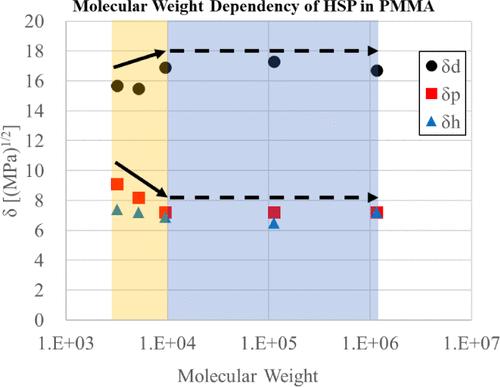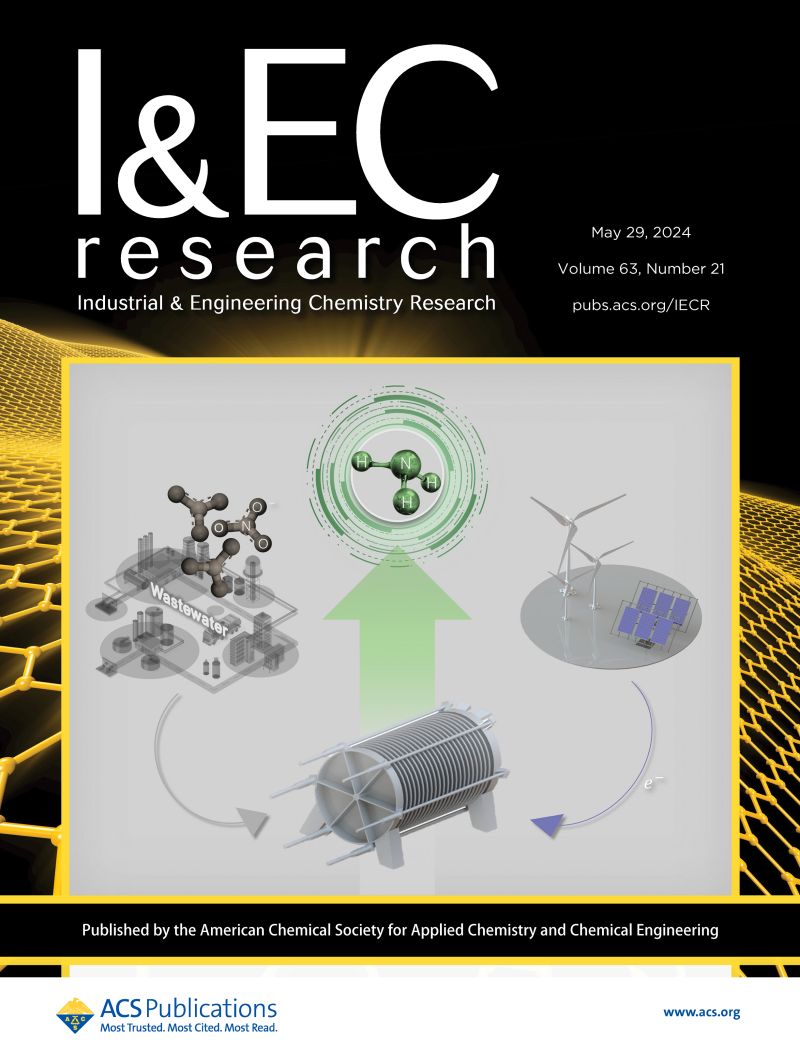Investigation of Molecular Weight Dependency of Hansen Solubility Parameters for Poly(methyl methacrylate) Using Inverse Gas Chromatography
IF 3.9
3区 工程技术
Q2 ENGINEERING, CHEMICAL
引用次数: 0
Abstract
The Hansen solubility parameters (HSP), of substances, are crucial for evaluating the affinity between materials. Generally, the experimental determination of HSP is achieved using the Hansen solubility sphere method. However, this approach raises several questions relating to the experimental conditions used. In this study, we use inverse gas chromatography to determine the HSP of poly(methyl methacrylate) (PMMA). We measured the HSP for five different molecular weights of PMMA (in the range 3190–1,155,000) to establish the molecular weight dependency in polymers. The results indicated that in the molecular weight range 3190–9500, δd increased with increasing molecular weight, δp decreased, and δh showed no significant change. However, in the molecular weight range 9500–1,155,000, no significant changes were observed for any of the parameters. It can therefore be concluded that for PMMA with a molecular weight of at least 9500, the molecular weight dependency of the HSP is almost negligible.

反相气相色谱法研究聚甲基丙烯酸甲酯汉森溶解度参数的分子量依赖性
物质的汉森溶解度参数(HSP)是评价物质间亲和力的关键参数。一般采用汉森溶解度球法进行热sp的实验测定。然而,这种方法提出了与所使用的实验条件有关的几个问题。本研究采用反相气相色谱法测定聚甲基丙烯酸甲酯(PMMA)的热稳定性。我们测量了五种不同分子量的PMMA(在3190-1,155,000范围内)的热sp,以建立聚合物的分子量依赖性。结果表明:在分子量3190 ~ 9500范围内,δd随分子量的增加而增大,δp随分子量的增加而减小,δh变化不显著;然而,在分子量9500-1,155,000范围内,没有观察到任何参数的显著变化。因此可以得出结论,对于分子量至少为9500的PMMA, HSP的分子量依赖性几乎可以忽略不计。
本文章由计算机程序翻译,如有差异,请以英文原文为准。
求助全文
约1分钟内获得全文
求助全文
来源期刊

Industrial & Engineering Chemistry Research
工程技术-工程:化工
CiteScore
7.40
自引率
7.10%
发文量
1467
审稿时长
2.8 months
期刊介绍:
ndustrial & Engineering Chemistry, with variations in title and format, has been published since 1909 by the American Chemical Society. Industrial & Engineering Chemistry Research is a weekly publication that reports industrial and academic research in the broad fields of applied chemistry and chemical engineering with special focus on fundamentals, processes, and products.
 求助内容:
求助内容: 应助结果提醒方式:
应助结果提醒方式:


